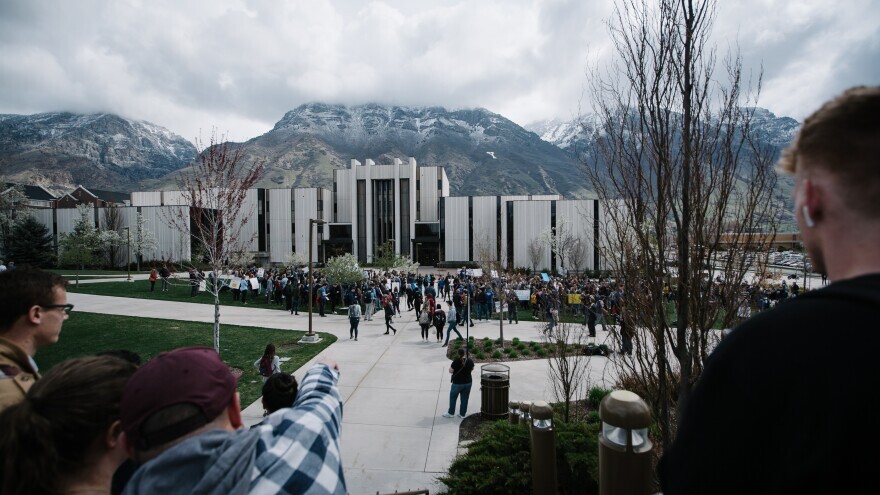This month, Church of Jesus Christ of Latter-day Saints officials changed two policies that impact Brigham Young University and the Church Educational System.
They tightened rules for on-campus demonstrations at the Church-owned school and for new hires. Latter-day Saint historians said these moves are how leaders are reaffirming the uniqueness of the faith.
“I do think this is really a muscular reassertion of the Church’s distinctive identity and mission,” said Patrick Mason, a Mormon historian and professor at Utah State University.
One change bans demonstrations on the prominent Y Mountain at BYU. The updated policy comes after people shined rainbow lights from it last year in support of LGBTQ students. BYU officials condemned the protest, and last August a Latter-day Saint apostle called on faculty to support the faith’s teachings against same-sex marriage.
“I think these are signs that the current leadership of the Church feels very comfortable where they are right now,” Mason said. “They have expressed the Church's positions on some of these publicly controversial issues and they do not want BYU to be a place where these public protests are aired.”
When it comes to the requirement for new Latter-day Saint hires to be worthy of holding a temple recommend, he said the hiring changes are clarifying previous rules but they probably won’t have wide-ranging impacts.
“The academic job market is so constricted, BYU remains a very attractive place to work,” Mason said. “Nobody's under any delusions of where they're going when they apply to BYU.”
These policy changes are most likely not connected and just happened to come about around the same time, said Matthew Bowman, who teaches Mormon history at Claremont Graduate University in California. But he said they both reflect the broader issues the Church and BYU are facing.
Bowman pointed to the national trend of younger people being against institutional religion, especially when they’re in college. He said BYU has always been focused on “emphasizing orthodoxy and fidelity” among young people, and these latest policy changes are reaffirming that strategy.
“It seems to me that the Church has picked up this sense of separation and the sense that being different from mainstream American society is the way through which the Church will survive,” he said.





